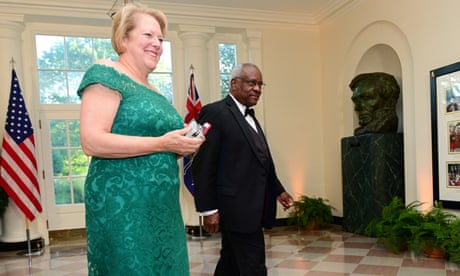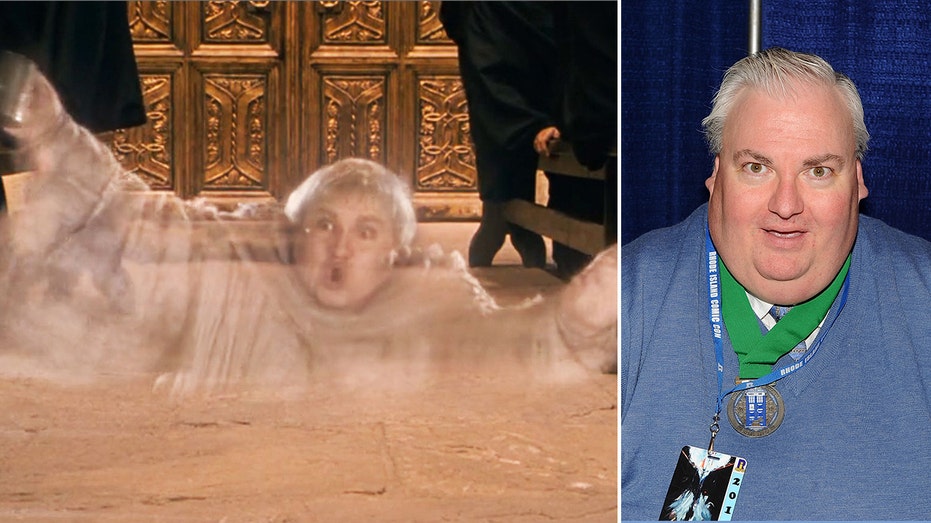- by foxnews
- 11 Mar 2025
Who has more influence on supreme court: Clarence Thomas or his activist wife?
Who has more influence on supreme court: Clarence Thomas or his activist wife?
- by theguardian
- 29 Jan 2022
- in news

Clarence Thomas, the hardline conservative supreme court justice, is facing calls for his recusal in the case over race-based affirmative action in college admissions that the court agreed to hear this week.
Ginni Thomas sits on the advisory board of the National Association of Scholars. Observers are concerned that her position with a group that has intervened in the affirmative action case could present appearances of conflict of interest.
Noah Bookbinder, president of the government ethics watchdog Crew, told the Guardian that while supreme court regulations may not legally require Thomas to recuse himself, there were serious questions to answer.
An even more direct intervention in the politics surrounding Trump and the big lie was made last December when Thomas joined 62 other influential conservatives in signing an open letter to the leader of the Republicans in the House of Representatives, Kevin McCarthy. It urged him to expel the Congress members Liz Cheney and Adam Kinzinger from the Republican party.
Since the Capitol insurrection, the Department of Justice has arrested more than 725 defendants in relation to the storming of the building. Federal prosecutors have charged 225 with assaulting, resisting or impeding police officers, including over 75 charged with using a deadly or dangerous weapon or causing serious bodily harm to an officer.
Last week the supreme court rejected attempts by Trump to block the January 6 committee from acquiring his White House records from the time of the attack. There was only one dissent from the bench to that 8-to-1 decision: it came from Clarence Thomas.
Should the rightwing majority around Thomas use its newfound muscle to ban affirmative action, as is widely predicted, it would mark the negation of more than 30 years of settled constitutional law on the matter. What lies ahead bears strong resemblance to Roe v Wade, the landmark 1973 ruling that made abortion legal which the court is probably poised to weaken or even overturn outright.
Mayer points out in the New Yorker that an amicus brief was filed in the supreme court case challenging Roe by Robert George who also sits on the advisory board of the National Association of Scholars alongside Ginni Thomas.
It is established practice in all federal appeals courts, though not in the supreme court, that amicus briefs brought by anybody with a connection to a judge hearing a case are routinely thrown out.
- by foxnews
- descember 09, 2016
High-end vacation resort bans children to achieve 'tranquil environment'
The Alila Marea Beach Resort, located in Encinitas, California, has announced that it's no longer accepting kids and is transitioning to an adults-only vacation spot.
read more


